1. Neighborhood Watch Groups That Overstep
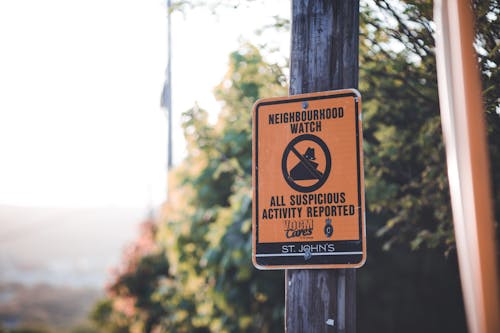
A neighborhood watch can feel reassuring—extra eyes and ears keeping everyone safe. The first meetings are friendly, and the group works well with local police. But over time, some members get overzealous, tailing “suspicious” people and installing cameras aimed into private yards. Accusations of harassment and privacy violations aren’t far behind.
In many states, recording someone without consent—especially on their private property—is illegal. Civil lawsuits over defamation and invasion of privacy can drain bank accounts. And if racial profiling enters the picture, it can lead to serious legal and reputational fallout. What began as a safety net can morph into a legal quagmire.
2. Shared Driveways That Suddenly Aren’t So Shared
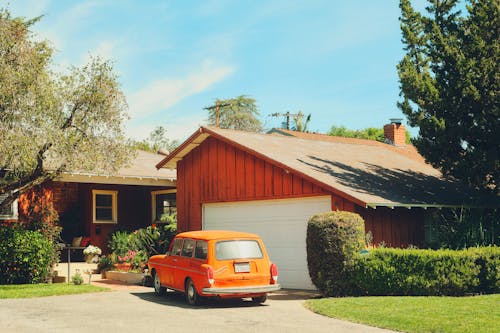
At first, a shared driveway feels like a friendly, space-saving arrangement between neighbors. Everyone’s respectful, you wave when you pass, and no one minds if a car is left overnight. But three years in, someone might sell their home to a less-friendly buyer who starts fencing off “their” half. Suddenly, you’re dealing with property surveys, easements, and maybe even a lawsuit.
These disputes often stem from unclear legal descriptions in deeds. If your property line is even slightly ambiguous, a determined neighbor can claim part of the driveway as theirs. Title insurance can help, but it won’t prevent the day-to-day stress while it’s being resolved. And in many states, prolonged disputes can even lead to adverse possession claims.
3. Community Pools That Breed More Than Fun

A neighborhood pool sounds idyllic when you move in. It’s a place for summer parties, exercise, and casual chats with the HOA board. But after a few seasons, the maintenance costs spike, and some neighbors refuse to pay increased fees. Arguments start, liens get filed, and friendships dissolve into courtroom showdowns.
Beyond money, liability is a ticking time bomb. If someone is injured or—worst case—drowns, lawsuits can target both the HOA and individual members. In states with joint liability laws, that means your personal assets could be at risk. What started as a splash of fun can sink into a legal and financial nightmare.
4. Backyard Chickens That Cross the Line

At first, backyard chickens are a quirky, sustainable perk of semi-rural neighborhoods. Neighbors might even swap eggs and post cute photos online. But three years in, roosters start crowing at 4 a.m., coops get messy, and smells drift into nearby yards. Soon, complaints are filed with zoning boards and animal control.
Many municipalities have specific regulations about livestock within city limits. If a neighbor violates those, the entire area can face inspections and restrictions. Noise ordinances can also come into play, especially if a rooster is involved. Legal battles over “farm animals” in residential zones are surprisingly common and often bitter.
5. Street Parking That Becomes Turf Warfare

In the honeymoon phase of living somewhere new, street parking feels abundant. People are polite, there’s plenty of space, and the occasional guest doesn’t ruffle feathers. But after a couple of years, more cars move in, and suddenly spots are claimed like prime beachfront property. You find notes on windshields and calls to the police for “blocking” a driveway that isn’t actually blocked.
Local ordinances can be vague about parking rights, leaving neighbors to interpret them creatively. In many cases, homeowners can’t reserve public street space, but try to anyway. Disputes escalate quickly when towing or vandalism enters the picture. Even if the law is on your side, court costs and stress often outweigh the victory.
6. Tree Branches That Cross the Wrong Line

That gorgeous shade tree you share with your neighbor feels like a blessing at first. It keeps your yard cool and gives the street charm. But after a few years, its roots crack sidewalks, branches block gutters, and fruit drops into places it’s not welcome. Pretty soon, you’re arguing about trimming rights and repair costs.
In many jurisdictions, you have the right to trim branches over your property—but not to damage the tree. If your actions harm it, you can be liable for thousands in damages. On the flip side, failing to address dangerous limbs can make you responsible if they cause injury or property damage. It’s a surprisingly high-stakes branch of neighbor law.
7. Block Parties That Block More Than Streets
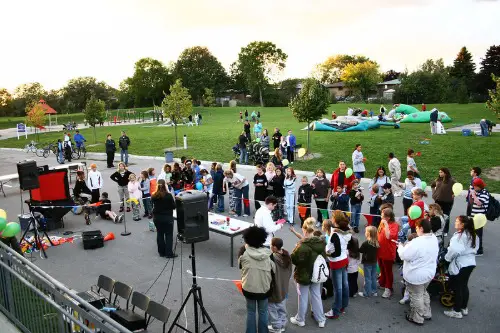
The first couple of years in a friendly neighborhood often include block parties. They’re lively, bring people together, and make the street feel like home. But once permits lapse or noise complaints pile up, the events can draw the attention of local law enforcement. Tickets for unpermitted road closures and amplified music can follow.
In many cities, blocking a public street without proper authorization is illegal. Even with permits, liability insurance is sometimes required in case someone is injured. If alcohol is served without a license, the organizer can face hefty fines. Suddenly, your beloved annual tradition becomes a legal liability no one wants to host.
8. Fences That Inch Out of Bounds
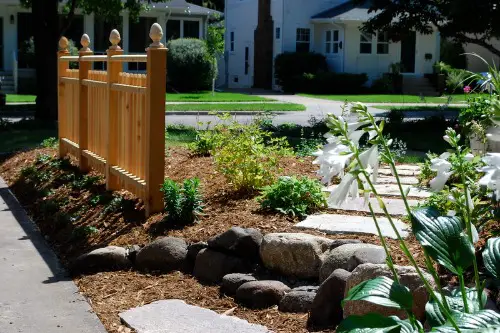
A fence might seem like a straightforward improvement. You put it up, paint it, and enjoy your privacy. But a few years later, a neighbor gets a property survey and claims your fence is over the line. What follows is a tangle of boundary disputes, removal orders, and court filings.
Boundary encroachment laws vary by state, but they often favor the documented property line. If you’ve been using the land for a certain period, adverse possession might work in your favor—but proving it isn’t easy. Legal fees can climb quickly, and relations with your neighbor can sour permanently. A simple fence can turn into an expensive dividing line in more ways than one.
9. Short-Term Rentals That Shorten Tempers

When a neighbor starts renting out their home on Airbnb, it can seem harmless or even helpful for local tourism. At first, the guests are polite, and the turnover is low. But within a few years, loud parties, overflowing trash bins, and parking congestion become routine. Complaints to the city lead to investigations and fines.
Many municipalities now have strict rules—or outright bans—on short-term rentals. HOA bylaws may also prohibit them, leading to costly enforcement actions. Even if you’re not the host, living next to one can drag you into disputes over noise, zoning, and nuisance laws. That “charming vacation rental” can quickly feel like a full-time headache.
10. Decorative Ponds That Drown in Red Tape

A shared decorative pond can look like something out of a real estate ad. Ducks waddle by, kids feed fish, and it’s a selling point for the whole neighborhood. But after a few years, maintenance lapses lead to algae blooms, mosquito infestations, and unpleasant smells. The health department might get involved, along with environmental regulators.
In some states, standing water must meet specific safety or drainage standards. If a pond becomes a breeding ground for disease-carrying insects, the owners can face fines or be ordered to drain it. Liability for drownings—especially involving children—is another serious risk. The picturesque pond can become a legal sinkhole.
11. Sports Courts That Court Trouble

A shared tennis or basketball court is a nice perk for active neighborhoods. The first games are friendly, and everyone respects the posted hours. But over time, noise complaints grow, especially in the evenings. Conflicts erupt over who’s responsible for resurfacing or replacing nets.
If the court is on common property, the HOA usually manages it—but that means fees, rules, and enforcement. Injuries can also lead to liability claims if the surface isn’t well maintained. Some neighbors may even petition to have it removed entirely. That “community asset” can quickly turn into a legal burden.
12. Mailbox Clusters That Deliver Drama
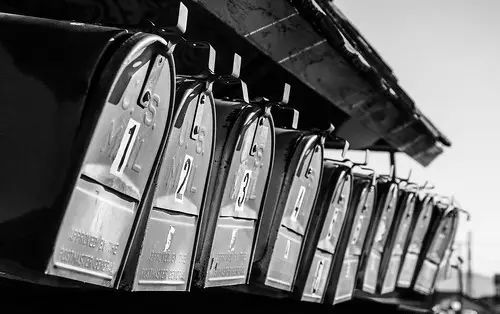
At first, a shared mailbox cluster feels efficient. The mail carrier loves it, and you meet neighbors while picking up letters. But after a few years, people argue over maintenance, vandalism repairs, and who gets to decorate it for holidays. Theft or tampering incidents can escalate tensions.
Under federal law, tampering with mail or mailboxes is a serious crime, but proving who’s responsible is hard. The Postal Service doesn’t handle maintenance—it’s up to the property owners or HOA. Disputes over cost-sharing can spiral into legal action. Even the mailbox, it turns out, isn’t immune to neighborly conflict.
13. Private Roads That Privately Drain Wallets
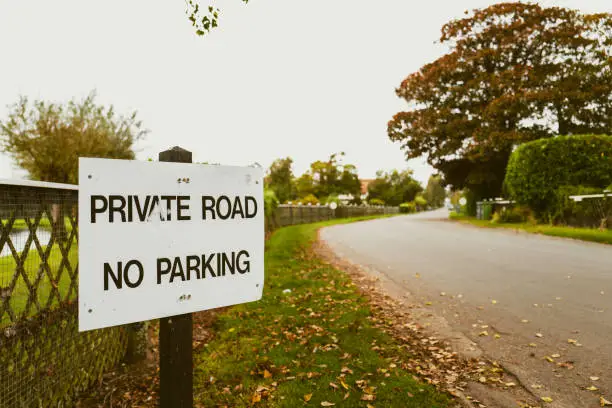
Living on a private road can feel exclusive and quiet. In the early years, it’s smooth and well-kept, thanks to cooperative neighbors. But eventually, the pavement cracks, potholes form, and resurfacing quotes hit tens of thousands of dollars. Some neighbors refuse to pay, and legal action follows.
Private road maintenance agreements aren’t always clear or even written down. Without one, collecting funds from everyone is difficult and sometimes impossible without suing. If emergency vehicles can’t access the road due to poor conditions, liability risks grow. That peaceful lane can become the most stressful part of living there.
This post 13 Neighborhood Perks That Turn into Legal Nightmares Within 3 Years was first published on Greenhouse Black.
